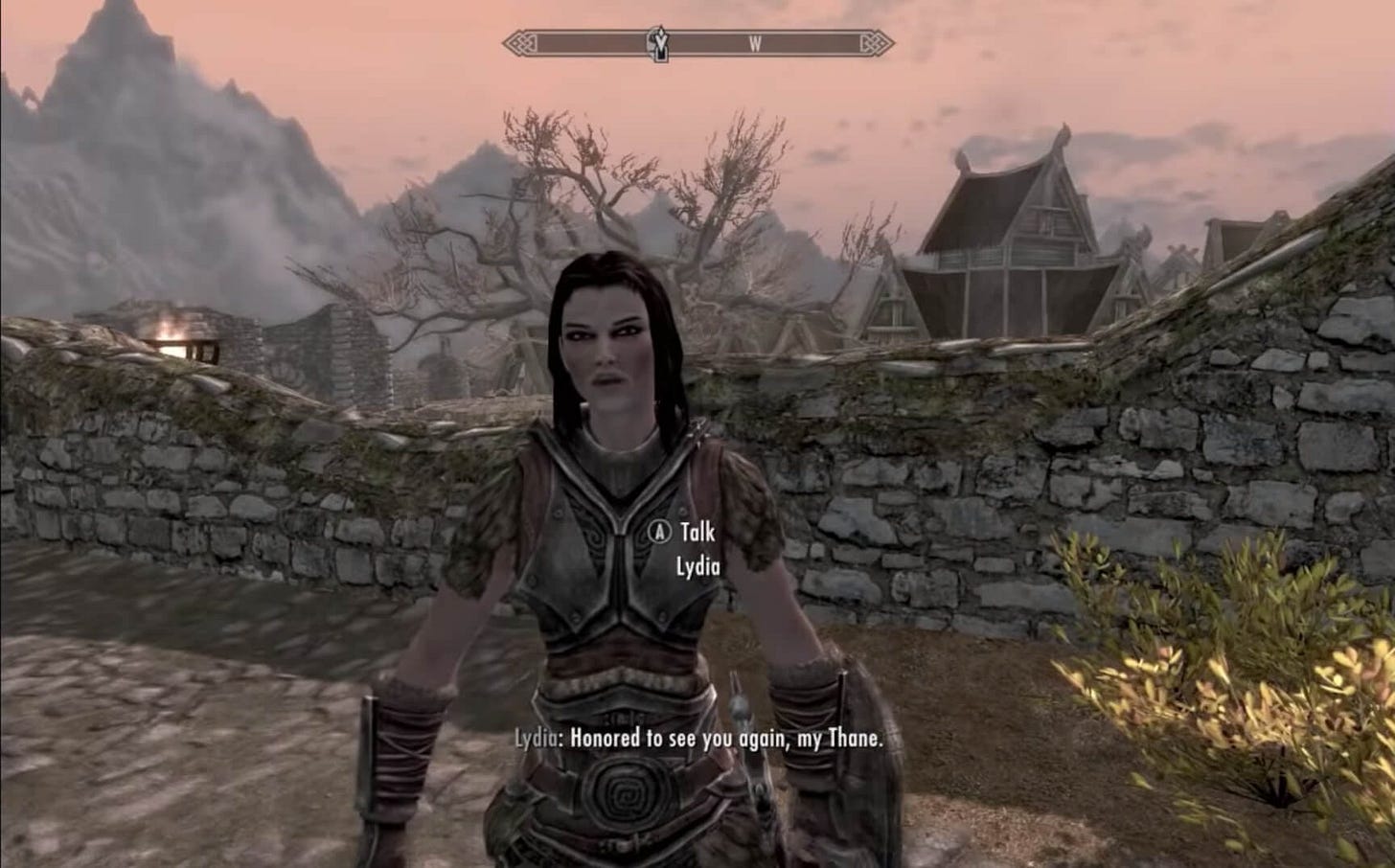Piers Morgan And The Manufacturing Of Opinion
What can Jacques Ellul's ideas about vertical and horizontal propaganda tell us about online discourse?

I’m currently reading Propaganda a book by Jacques Ellul who readers may be more familiar with from his well-known work The Technological Society (which I haven’t read). I will probably have more to say on Propaganda upon finishing the whole book but I thought I’d take some time out just to meditate on a passage that I found astonishingly prescient and worthy of some attention. As you might expect, in Propaganda Ellul thoroughly breaks down and analyses what propaganda is, how it manifests itself and imposes itself, shapes, and forms the psyche of the mass man of modernity. We are all being propagandized all of the time, however, the more disconnected you are from the mainframe the less likely the mind heist is to program you.
On page 80 Ellul discusses the nature of, and the difference between, vertical and horizontal propaganda. Vertical propaganda is a top-down form of indoctrination emanating from an institution, political party, or authority figure. The BBC, CNN, and Fox News are vertical propaganda. National Socialist Germany or the USSR would be classic go-to examples of regimes that engaged in vertical propaganda though, to his credit, Ellul recognizes that this would not make for particularly prescient analysis and so he casts his net both farther afield, and also closer to home.
Horizontal propaganda is indoctrination (messaging if you’d prefer) which is embedded more locally or within a network or social grouping. The various meme posters of the online right on Twitter or under comments across the internet are examples of horizontal propaganda as would a Vietcong agent handing out pamphlets in a village. Within a liberal democracy horizontal propaganda is used more frequently than it would be in a direct dictatorship because the masses have to believe they arrived at an opinion through their own volition and agency.
The effect of vertical propaganda on the targeted individual is, according to, Ellul:
One trait of vertical propaganda is that the propaganda remains alone even though he is part of a crowd. His shouts of enthusiasm or hatred, though part of the shouts of the crowd, do not put him in communication with others; his shouts are only a response to the leader. Finally, this kind of propaganda requires a passive attitude from those subjected to It. They are seized, they are manipulated, they are committed; they experience what they are asked to experience; they are really transformed into objects. Consider, for instance, the quasi-hypnotic condition of those propagandized at a meeting. There, the individual is depersonalized; his decisions are no longer his own but those suggested by the leader, imposed by a conditioned reflex.
When we say that this is a passive attitude, we do not mean that the propagandee does not act; on the contrary, he acts with vigor and passion. But, as we shall see, his action is not his own, though he believes it. Throughout, it is conceived and willed outside of him; the propagandist is acting through him, reducing him to the condition of a passive instrument. He is mechanized, dominated, hence passive. This is all the more so because he often is plunged into a mass of propagandees In which he loses his individuality and becomes one element among others, inseparable from the crowd and inconceivable without it.
Unfortunately, the ‘‘mechanized passive instrument’’ is essentially what most Westerners have been reduced to precisely because they’ve been subjected to decades of vertical propaganda. We can also see that Ellul’s work, written 60 years ago, describes perfectly what in internet terminology is the ‘‘NPC’’. The NPC or Non-Player Character is a feature of video games wherein a character has a set of generic lines and behaviours that it repeats. In Skyrim, if you ask your sidekick Lydia to carry your loot she will respond to your prompt with ‘‘I’m sworn to carry your burdens’’. In the same way, if you express the view that English people can only be white, the modern liberal will almost certainly respond to the external stimuli with the stock response of ‘‘racist’’.
It is a depressing realization that so many of our fellow citizens have been reduced to passive instruments of power, devoid of agency and any critical faculties whatsoever.
The so-called ‘‘Great Meme War’’ of 2016 offers up a rare opportunity to study a period during which the system wobbled a bit. There has of course been much study on the populist surge, and rightly so. However, using the lens of Ellul’s Horizontal/Vertical paradigm we can see that, what really went on, was something of a system failure in the regime’s monopoly on propaganda.

The new technology of social media allowed — as its name suggests — horizontal propaganda to flourish, so much so that Power’s vertical propaganda was not just undermined, but brought under scrutiny, exposed, and ridiculed. As we were later to see with the Trump presidency, Power itself was not threatened by memes and internet posters, but its ability to propagandize efficiently was. The monopoly of manufacturing opinion was temporarily lost, and the NPCs were being asked to respond to prompts they weren’t programmed for.
The response of the regime was to drop what was, in effect, napalm carpet bombs of censorship on the networks spreading horizontal propaganda, in order to protect liberal democracy, of course.
Since the Great Meme War, there has been a gradual shift of the regime propaganda centres onto the fertile ground of social media. This heralds a strategy of not just capitalizing on the reach available, but also filling the cinder-like craters left by (the now) purged dissident content creators. Social media is awash with shills and gatekeepers, peddlers of half-baked ideologies and conspiracies. This is to say, the regime has replaced organic, emergent, horizontal propaganda with its own creations. Where once a thousand shitposters bloomed there stands only the dead plastic dryness of astroturf.
With all of this in mind, let us now ask ourselves a question.
What is the point of Piers Morgan?
In typically dramatic and orchestrated fashion, Piers Morgan left the vertical propaganda zone of mainstream television and set up shop on the Internet a few years ago. Currently, his YouTube channel has 1.4 million subscribers and his clickbait offal masquerading as content routinely reaches well into the hundreds of thousands of views. Morgan is, in my view, the quintessential ‘‘Gatekeeper’’. Usually, when people refer to an influencer being a Gatekeeper they mean a person who patrols a social space or network with the aim of keeping radicals and their ideas out or restricted. The fact that we’re discussing social networks and conversations between people and groups means we’re in the terrain of horizontal propaganda here.
A quick browse of Morgan’s YouTube channel reveals that what he’s talking about is transgenders, Barbie, slavery reparations, eco protestors, and a plethora of news grind stories. In these interactions, Morgan will adopt the role of the put-upon common man with common sense who is tired of the craziness. Nevertheless, he is in the act of platforming and highlighting these causes because he, true to his liberal persona, ‘‘values free speech’’. The effect of this in terms of propaganda is to ‘‘flood the zone’’ with impotent centrism, in other words, Morgan’s propaganda is not dictatorial but horizontal and designed to be a narrative rubber bullet rather than titanium tipped.
Recently, Morgan invited a young female internet personality onto his show who had appeared before. This time a trap was sprung when Morgan launched into attack mode due to her singing a song questioning Jewish Power and why it could not be discussed. Morgan reframed the discussion to ask her why she wanted to defend or discuss Adolf Hitler. The young woman repeatedly (and clumsily) replied by asking why such moral condemnation was warranted whenever this particular group was in question. She wasn’t interested in defending Hitler or Nazis, she was exploring the limits of discourse and why this area was out of bounds.
For Morgan, however, the task was to make clear that discussing this subject was inherently repugnant and ‘‘Distasteful to most people’’. Thus, Morgan’s sane guy in the centre persona was deployed to gatekeep and maintain order in the discourse.
During the Covid pandemic, the fluctuating and chaotic dialectic came to rest on the liberal left being in favour of more draconian measures — such as lockdowns and vaccine mandates — and the broad spectrum of the right being more skeptical. The tendency of the centre-right was to play down the seriousness of the virus and lean into various tropes about the liberal left being both rather wimpish and totalitarian.
Thus, the very demographic that comprises Morgan’s audience had adopted a ‘‘take it on the chin’’ don’t panic attitude in opposition to the left-leaning hysteria. Morgan then flipped the script and took the line that everyone who was opposed to the most draconian measures possible was the whimpering coward. The cultural trope of the stiff upper lip was co-opted by Morgan and inverted, now it was those skeptical of quadruple vaccinations and China-style lockdown policies that were misguided and inconsiderate.

In what must count as a pitch-perfect example of vertical propaganda, Morgan aligned himself with the most radical proponents of Covid measures, equaled only by a handful of technocrats in NGOs. Morgan later recanted on his vaccine enthusiasm claiming that ‘‘the science had changed’’.
We see, then, that the gatekeeper is not merely in the business of keeping subversive ideas out, but also in throwing the gates wide open when Power demands the centre itself adopts a radical stance. Morgan routinely platforms the eco-warriors who block traffic and glue themselves to paintings, here once more he’s playing the role of beleaguered John Bull surrounded by whackos. However, scratch the surface a little and you will see that Morgan is in full agreement on the wider Climate Change agenda and when GloboCorp begins to track your carbon footprint you can rest assured that Morgan will be the first to pillory you for resisting.
It should come as no surprise to see that Morgan has repeatedly platformed Andrew Tate. Here we return from the vertical to horizontal and we can reasonably ask ourselves: What is the point of Andrew Tate?
It is my opinion that the reason Andrew Tate is so seemingly ubiquitous online is that he’s horizontal propaganda designed, not so much to convey an ideology, but to clog up the arteries and networks of horizontal opinion propagation and formation with divisive nonsense and drama. The regime’s counter-propaganda delivered horizontally does not need to be tightly coordinated, it is enough that a producer books an influencer who is courting controversy but also highlighting truths, such as issues with feminism or young men. However, this package will come wrapped in various forms of sticky ooze which cling to and disrupt the smooth and efficient running of the heretical propaganda effort. MAGA Communism is another nonsensical trend being algorithmically wafted into right-wing networks.
In an age of carefully curated opinion and a populace drenched in propaganda, Ellul’s work is a valuable asset as we attempt to navigate our way through the suspiciously planted weeds and pompous sunflowers in the garden of discourse. I look forward to reading the second half…